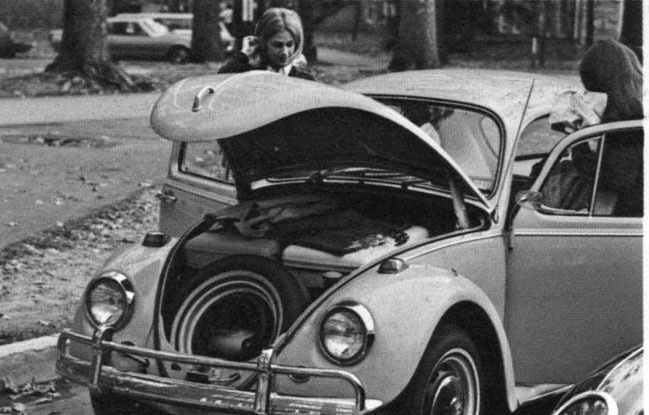| 1966 |
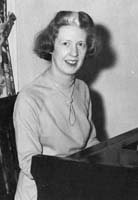 |
Dorothy Wilson, Associate Professor of Music, returns from
a year's leave spent in Kobe, Japan. During the school year, Dorothy taught
and directed all phases of music at the Canadian Academy in Kobe, grades
one through twelve. Her year leave also included extensive travel throughout
Australia, southeast Asia, New Zealand, India, and southern Europe.
Public Relations |
| 1967 |
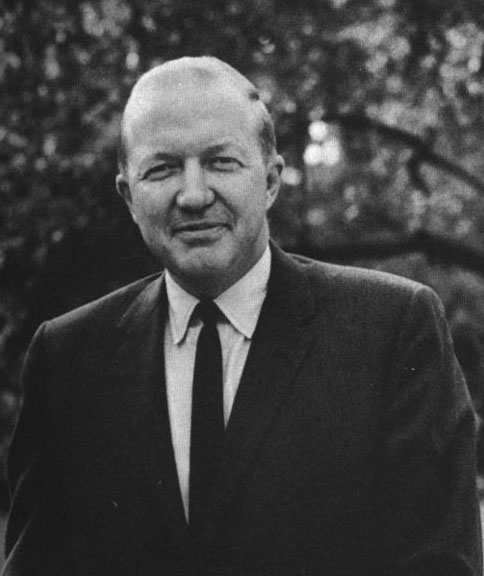
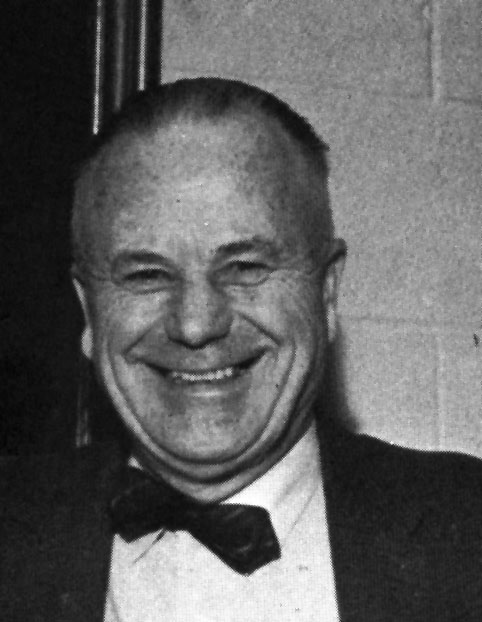 |
Johnsons Invites
President Watts
President Charles H. Watts II, and Forest D. Brown,
former executive secretary of the Christian Association
at the University, and their wives, represented Bucknell at
a White House reception honoring Ne Win, head of the state
of Burma last Thursday evening.
The invitation to attend the Washington affair was
extended by President and Mrs. Johnson.
Bucknell's
friendship with Burma goes back to the University's earliest
days and Maung Shawloo, the first Burmese physician trained
in America, was Bucknell's first foreign student.
The Burma-Bucknell Weekend originated in 1948 as
a meeting with Bucknell's Burmese friends, became an annual
affair on the campus.
The Bucknellian, 9/22/66 |
| 1967 |
|
Popular Singer Tours
S-FC, IFC Co-sponsor
Dionne Warwick Concert
Dionne Warwick, famed popular singer, will appear at Davis Gym tomorrow at
8:45.
"Don't Make Me Over" was Miss Warwick first hit
and it immediately brought
her public acclaim. Other recordings such as Who Had a Heart on By followed.>
In August, 1964, Miss Warwick made a four-month tour of Europe making
personal appearances in all major countries outside the Iron Curtain. The
trip concluded at the Olympia Theatre in Paris.
The concert is so-sponsored by the Student-Faculty Congress and
Intrafraternity Council.
The Bucknellian, 9/21/67 |
| 1967 |
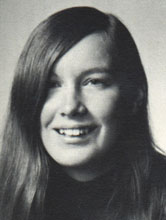 |
Recollection
Sally Lifland Butterfield '71, came to Bucknell in 1967
and she remembers:
The most amazing thing that I think
back on to my freshman year here was the duck walk.
Now I don't think that was officially in any way sanctioned by the
university. But it happened every year. They knew it happened.
They let it happen. This occurred--oh, I don't know, maybe the
second or third weekend that we were at Bucknell. And what
happened was, I think it was a Saturday morning, the upper class
women came rushing in to the freshman dorm carrying rolled up newspapers.
They were shouting, "Okay, everybody out. Let's go!" and herding us
into the open area between the dorms. And if you didn't move fast
enough then they started hitting you with these rolled up newspapers.
When we got downstairs then they made us get into a duck walk formation.
You bent over and put one hand in front of you to grab the hand of the
woman in front of you and the other hand you put between your legs and
behind you to grab the hand of the person behind you. And in that
position we had to walk all the way up the hill past all the fraternity
houses at the top of the hill . . . and I think past some of the ones
at the bottom of the hill. And the fraternity brothers threw old stale
beer, rotten vegetables, eggs, garbage all over us. And we were not
allowed to break our formation. If we started to try to walk away or
to break our hand grip then the upperclass women would hit us with the
newspapers.
Now when I think back on that, it's just hard for
me to believe that we submitted to that kind of treatment.
We just accepted it as our lot as freshmen women at Bucknell.
It was incredibly degrading. It's hard to imagine it existed.
We were complicit in it at the time . . . in that we could
have refused, and we didn't.
Generally the atmosphere
was relatively old-fashioned. Social life very much revolved
around dates and fraternity parties and guys inviting girls to
things as opposed to a young woman calling up a guy to invite
him to do something.
WRC Interview, 6/96
|
| 1967 |
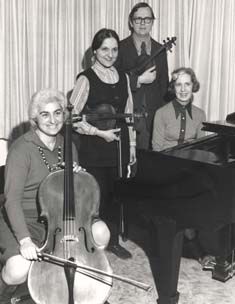
|
Zoya Jenks is hired as an adjunct lecturer in the music department.
She recalled great inequities in pay and benefits, especially with regard
to women lecturers. When Zoya first worked here, single women, in particular,
were paid a lower rate than married men were. Of course the University was
very secretive about the pay so women didn't really know; and married women
were paid less because their husbands were working, therefore it was thought
by the University that they wouldn't need to make as much money as the men.
There were other inequities in terms of health care benefits too. There
were only male doctors in student health services until the mid 70s.
Zoya also remembers it wasn't until the early 70s that the daycare
issue was addressed and Sunflower Daycare Center was eventually built.
Zoya recalls, "I have been on the Bucknell payroll since 1967
in some capacity or another and it was not until 1981 that I
became full-time staff in the library; it was then that my
benefits changed." One of Zoya's contributions during her long
career at Bucknell was a manuscript on the history of women in
science and technology at Bucknell. She did this as part of a
graduate program for a Master's degree.
Zoya is an accomplished cellist active in the Bucknell Symphony
Orchestra, the Chapel Choir and the Opera Company, and also
performs on National Public Radio.
All in all, Zoya believes great advances have been made during
recent decades and encourages female students not to limit
themselves for any reason.
WRC Interview, July 1996
|
| 1968 |
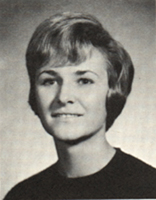
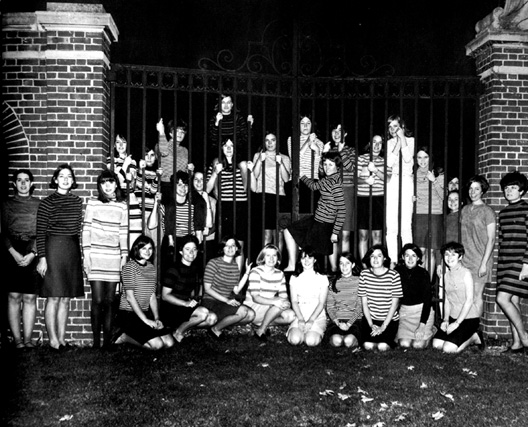
|
Recollection
Miranda McGinnis, a Bucknell graduate from the class of 1968, recalls
one of the experiences, which she fondly remembers - joining Phi Mu Sorority.
In Phi Mu, she held the position of Rush Chair and later President. As Rush
Chair, she helped to implement structural changes within the rush system.
"A major change that they made was that they set up a rotation system for
the first two nights of rush so girls would rotate around talking to many
more women than just one small group." As
a result Phi Mu Sorority retained large and more diverse pledge class.>
Phi Mu was not looked upon as one of the top sororities because it
was not comprised of cheerleaders. It was a diverse group composed
of people in theater, student government, and engineers. It was
comprised of many independent thinkers who often boasted to
other sororities about their high grade point averages. She recalls
that, "If a young woman or man really wanted to be involved in the
social scene on campus, that person must be involved in a Greek
organization." Approximately 60% of women were in sororities at
that time.
WRC Interview, June, 1996
|
|
| 1968 |
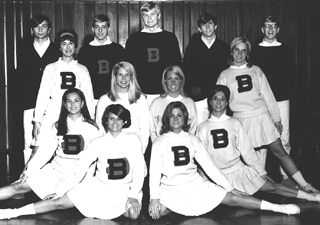 |
Bucknell cheerleaders include: Sal Pisapia, Snoozy White,
Frank Wheaton, Joe Barraclaugh, Criag Eby,
University Archives
|
| 1969 |
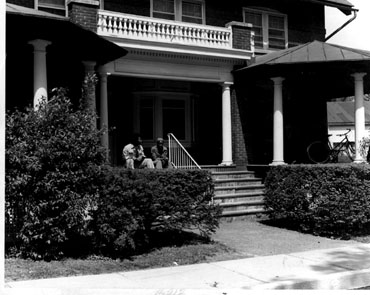
|
After long consideration, the University granted special housing
for African-American students. Of the 41 African-American full-time students,
thirteen Black male students chose to live in Edwards House and ten women
received priority pick and chose to live in Seventh St. House.
When asked to provide comments on how well the
first semester went, one student, who lived in Edwards House
stated: "this place offers a more relaxed social atmosphere
so that we can do what we want without being made to feel abnormal.
Definitely the atmosphere is much looser."
>
Mosaic, 3/95 |
| 1970 |
|
In September, a group of concerned University education and
assistance to students regarding sexuality and contraceptives. The group
has information on "birth control methods, venereal disease, legal counseling,
and problem pregnancies." The Student Information Service Committee will
later help establish a pregnancy clinic open to college students two nights
a week in Lewisburg. The operation, which will always have a registered
nurse on duty, is set up under Dr. Jack Fairweather, an accredited obstetrician
and gynecologist.
The Bucknellian, 9/25 &10/9/70 |
| 1970 |
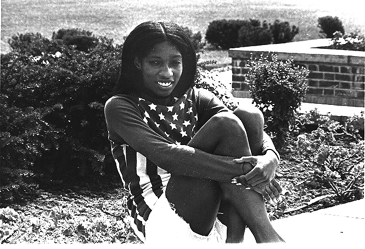 |
Veda Ward, '72, is elected Homecoming Queen in October. She
is the only African-American to be chosen for this role. A Religion and
Spanish major, Veda also is a member of Pi Beta Phi sorority and has served
as a member of the Dorm Council. She will later receive a Ph.D. from the
University of Maryland and become a professor of Leisure Studies and Recreation
at California State University at Northridge. |
| 1970 |
|
The women's student government, Associated Women Students,
redefines its role in a statement to the school newspaper. In the past,
AWS has been the sole governing body, but with the advent of a "no-hours"
policy eliminating curfews for women the adoption of a new judicial procedure
students and emphasis on co-educational experience organization foresees
shift in from governing to programming. >
The Bucknellian, 10/9/1970
|
| 1970 |
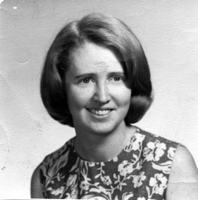
|
Maureen Murphy, is hired as a Visiting Professor in the Department
of Religion. Maureen was formerly an elementary schoool teacher and a nun
in the Benedictine order before attending graduate school at Catholic University.
She will later be instrumental in developing the women's studies program
and an affirmative action plan for Bucknell. She also will serve as an advisor
for the Mortar Board Society and the women's student group, Amicae. In addition,
Maureen becomes a founding mother of the Women's Resource Center Advisory
and serves as an important member of the WRC Advisory Board.
Public Relations |
